Merchant Cash Advance Risks and Myths
October 24, 2014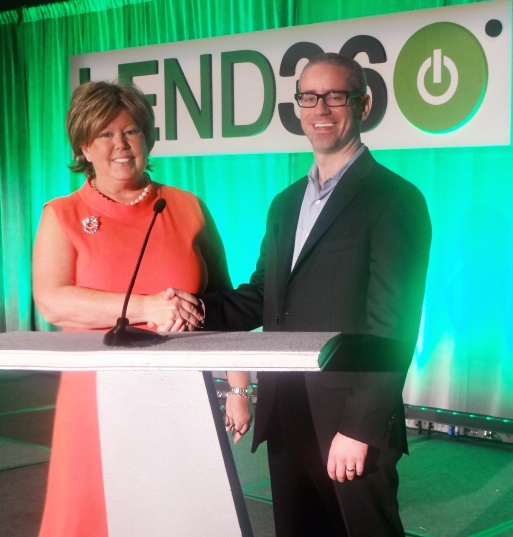 The Lend360 Conference in New Orleans last week had a different vibe from the five other conferences I’ve attended this year. For one, I was a partner in it through DailyFunder. And further, there was a huge focus on best practices, ethics, and regulations. Expert speakers and panelists aired it out to dispel myths and disclose risks.
The Lend360 Conference in New Orleans last week had a different vibe from the five other conferences I’ve attended this year. For one, I was a partner in it through DailyFunder. And further, there was a huge focus on best practices, ethics, and regulations. Expert speakers and panelists aired it out to dispel myths and disclose risks.
Most telling about the future was a response from Victory Park Capital’s Brendan Carroll about whether or not he feared looming regulations could hurt the merchant cash advance and alternative business lending industry. As someone who has invested heavily in Kabbage and more recently in Square Capital, he expressed concern about regulations in general but clearly was not convinced they were on the immediate horizon for the industry.
Lisa McGreevy, president of the Online Lenders Alliance moderated the two-man panel which also consisted of John Hecht of Jefferies and she did a great job of digging out the true thoughts from one of the room’s most powerful investors. It’s unlikely a company like Victory Park Capital would invest hundreds of millions of dollars in an industry they believed faced imminent regulatory upheaval.
Merchant Cash Advance regulation is not on any regulator’s immediate agenda but they are doing their homework. At Lend360, it was revealed that several members of the North American Merchant Advance Association met with the Federal Reserve in Washington D.C. months ago for a Q&A. There’s communication occurring now on some levels. Even I’ve been contacted by the Federal Reserve to comment as a part of a broad research assessment.
Eventually I believe the CFPB will try to play a role in the industry through Section 1071 of the Dodd-Frank Act. We’re a long way from there though and it doesn’t mean they’ll be successful. Even internal operatives have expressed doubt on business-to-business jurisdiction.
In the meantime, it’s not all blue seas and sunny skies. Robert Cook, an attorney at Hudson Cook, LLP explained at the conference that the industry is already in many ways supervised by the FTC. And with the FTC, it’s not a question of how high the costs are, it’s about how transparent those costs are. If they’re high, fine, but do the customers understand them and are they marketed accordingly?
Terms like guaranteed, 99% approval rate, and lowest rates can be deemed deceptive if not true.
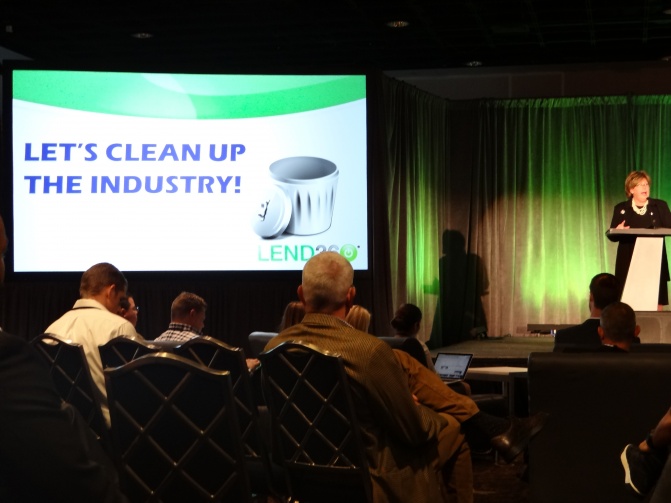 Transparency, ethics, customer experience, that’s what people in the business need to be focused on right now. Stacking, while a polarizing topic, seems to be a matter of contract law. Everybody’s caught up in the stacking debate believing it’s the lightning rod that will attract regulation. If left unchecked, it might draw interest, but it’s the fundamentals that get overlooked that could draw the ire of an agency like the FTC.
Transparency, ethics, customer experience, that’s what people in the business need to be focused on right now. Stacking, while a polarizing topic, seems to be a matter of contract law. Everybody’s caught up in the stacking debate believing it’s the lightning rod that will attract regulation. If left unchecked, it might draw interest, but it’s the fundamentals that get overlooked that could draw the ire of an agency like the FTC.
If your marketing says “rates from 1.10 and up”, while actually contracting 99% of your customers with 1.49s, that’s something you’ll probably want to address now. Think about the net cost your customer is likely to be charged. If a 1.10 is a buy rate and there’s a 10 point upsell, a 10% closing fee, and 10% origination fee that makes the end cost closer to a 1.40, you probably don’t want to market the cost as 1.10.
Right now it all basically comes down to doing good business in a transparent manner. Costs may be high but explain those costs, make sure the customers understand them. Don’t be deceptive. There will always be critics of high costs, but rational people are being exposed to the sober reality that you can lose money even at a 50% interest rate.
As a word of advice for new ISOs and brokers, stay away from funding companies that don’t even have a paid email account. If a funder is too financially strapped to afford a web domain, they probably are going to cut corners in other places too. The story about working off a gmail or hotmail account in the interim while they try to get their website set up is indicative that they’re getting ahead of themselves. There are way too many solid funding companies to choose from for you to entertain doing business with hotFunding4ISOsNow@hotmail.com. Even middlemen are accountable in the grand scheme of best practices and the customer experience.
Fund intelligently…
– deBanked
Also read:
4/11/14 Regulatory Paranoia and the Industry Civil War
8/13/14 Should Licensing and Accreditation come to Merchant Cash Advance?
Did Google Penguin Hurt Your MCA Website?
October 22, 2014 Google struck again late on Friday the 17th with a refresh of the Penguin Algorithm. As posted on Search Engine Roundtable, the algorithm is still rolling out and will continue to do so over the next few weeks.
Google struck again late on Friday the 17th with a refresh of the Penguin Algorithm. As posted on Search Engine Roundtable, the algorithm is still rolling out and will continue to do so over the next few weeks.
Those familiar with Penguin know that it targets backlinks, specifically: paid links, spam links, bad links, the whole gamut. Hit the trigger and your site can virtually disappear from search.
I monitor several keywords in our niche and I haven’t noticed much of a change between what I see now and what I saw prior to the 17th. Truthfully, some of the companies I see popping up now in the first 2 pages are exactly the type of companies I’d expect to see on a list offline. That’s a good indicator that something is going right.
The exact search results are different for everyone but amongst the top 20 results for the search term merchant cash advance, I get:
- OnDeck
- Kabbage
- AmeriMerchant
- Business Financial Services
- Capital for Merchants
- CAN Capital
- Merchant Cash and Capital
- Retail Capital
Years ago through spam manipulation, the first few results were dominated by random lead generation sites like fastcashfunding4unow.com. I see very few sites like that these days ranking well.
If you were wondering where your organic site traffic went in the last week, there’s a good chance you got Penguined. Good luck getting out of that!
Merchant Cash Advance SEO War Still Raging
October 9, 2014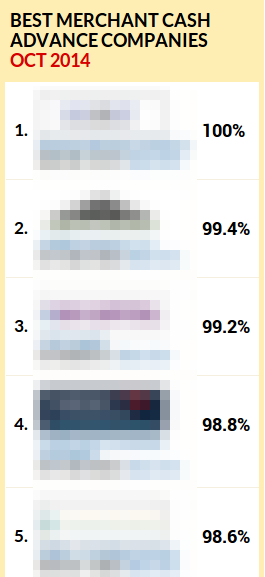 The top ten merchant cash advance companies ranked on a review website must have earned their placements due to actual reviews, right? Not so, say rival online marketers who’ve claimed sites such as topcreditcardprocessors.com are really just part of an elaborate paid lead generation scam.
The top ten merchant cash advance companies ranked on a review website must have earned their placements due to actual reviews, right? Not so, say rival online marketers who’ve claimed sites such as topcreditcardprocessors.com are really just part of an elaborate paid lead generation scam.
Mark Jackson, a blogger and marketer, had alleged that a website known as TopSEOs.com had been using deceptive practices for years. Three weeks ago a former employee of TopSEOs.com emailed Jackson to offer damning information that his suspicions had been right. That included a list of 15 other websites related to TopSEOs.com that were running similar review schemes. All are apparently owned by an individual named Jeev Trika.
While I don’t know Trika or if the allegations are true, I do know from what Jackson wrote is that he forwarded the email chain and the website list to Google’s director of web spam, Matt Cutts. That included topcreditcardprocessors.com
In recent years, Google has taken aggressive action to de-rank and de-list sites engaged in bad behavior from their search index. One example of bad behavior is a site that provides a poor user experience. Deceiving users into believing that businesses had been reviewed and ranked accordingly is deceptive if the true model is just about who pays the most to get ranked the best.
In New York State, fake reviews can be a criminal offense. Just ask the 19 companies that were ensnared in a deceptive review sting last year, causing them to be hit with $350,000 in penalties.
In addition to credit card processors, topcreditcardprocessors.com also ranked merchant cash advance companies. What’s rough is that all of the websites Jackson submitted to Cutts have been de-listed from Google’s search index, indicating that Google likely concluded those domains violated their Terms of Service.
 Jackson pointed out that Trika, the mastermind behind it all, was already taking measures to get back up and running in Google’s search index by moving from TopSEOs.com to TopSEOsGlobal.com. Similarly, topcreditcardprocessors.com has already moved their content to topcreditcardprocessorsglobal.com. All their first page search rankings have been lost for now so that probably means fewer leads for many companies over the next few weeks.
Jackson pointed out that Trika, the mastermind behind it all, was already taking measures to get back up and running in Google’s search index by moving from TopSEOs.com to TopSEOsGlobal.com. Similarly, topcreditcardprocessors.com has already moved their content to topcreditcardprocessorsglobal.com. All their first page search rankings have been lost for now so that probably means fewer leads for many companies over the next few weeks.
Of course there are a few similar websites to topcreditcardprocessors.com that purport to review merchant cash advance companies. The risk if they’re shut down is not just a loss of leads but a potential loss of trust by search engines for anyone that paid to appear on them. Google treats sites participating in link manipulation schemes unfavorably and has expanded the scope of how these schemes are defined a lot in the last twelve months.
@financeguy74 I like the full-size Penguin in the doorway–I think we have one of those!
— Matt Cutts (@mattcutts) September 30, 2014
Unless you’ve been in a coma, Google’s Penguin algorithm specifically targets websites engaged in link schemes. It’s uncertain if paid links on review sites like these would be covered under Penguin, but Penguin’s 3rd major run is expected to roll out any day now.
Google’s director of web spam has a good sense of humor when it comes to Penguin jokes, but Cutts is known to be absolutely ruthless when he discovers actual terms of service violators in their index. Back in December, Cutts articulated that he wanted to break their spirits. As quoted on Search Engine Land, he said:
if you really want to stop spam, it is a little bit mean, but what you want to do, is sort of break their spirits. There are lots of Google algorithms specifically designed to frustrate spammers. Some of the things we do is give people a hint their site will drop and then a week or two later, their site actually does drop. So they get a little bit more frustrated.
Just emailing Cutts evidence of manipulation is enough to put offending sites out of business or at least out of reach from Google searchers. That is what Mark Jackson appears to have accomplished by forwarding an email chain referencing TopSEOs.com and other sites.
A screenshot of the home page of what is now topcreditcardprocessorsglobal.com below:
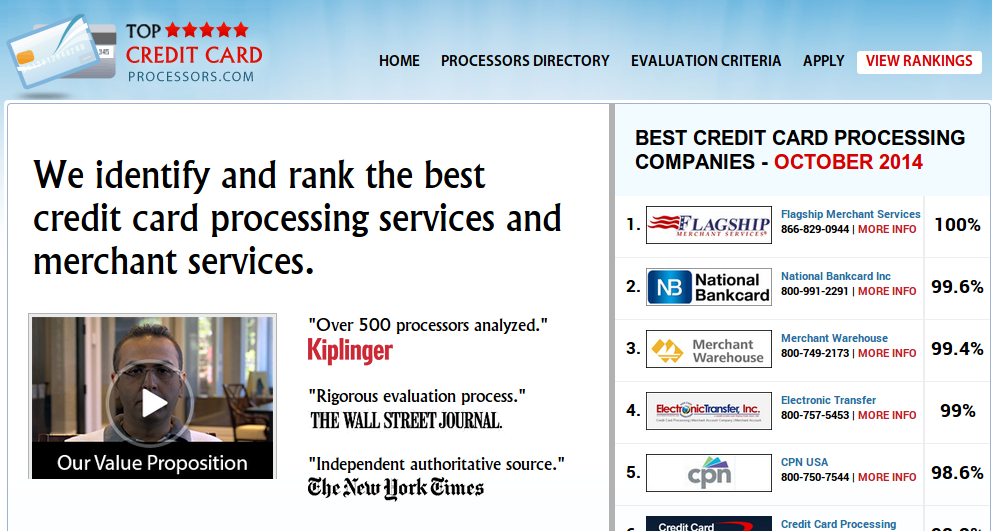
Review sites might be one way companies are generating leads online now, but check out some of my historical coverage regarding the war for Internet leads in this space:
Six Signs Alternative Lending is Rigged: Do Lending Club and OnDeck have a helping hand?
Google Penguin 2.1 takes swing at the MCA industry
Your merchant cash advance press release may be hurting you
Is Google your only web strategy?
The other 93% [of leads]
The SEO War for Merchant Cash Advance: The first story on this topic
Rapid Capital Funding Acquires American Finance Solutions
October 8, 2014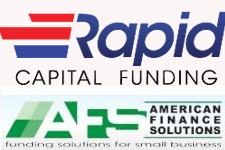 Miami, Florida-based Rapid Capital Funding will acquire Anaheim, California-based American Finance Solutions today in perhaps one of the most significant deals in merchant cash advance history.
Miami, Florida-based Rapid Capital Funding will acquire Anaheim, California-based American Finance Solutions today in perhaps one of the most significant deals in merchant cash advance history.
Rapid Capital Funding, not to be confused with RapidAdvance, is led by the company’s founder Craig Hecker. Hecker and AFS’s CEO Scott Griest broke the news to me on a call together. “It’s a roll-up,” Griest said. AFS will continue to operate under their brand name for the time being and Griest will remain a leader in the company.
Meanwhile, the operations of the two companies will begin to merge, with Hecker confirming already that their head underwriter, Andrew Hernandez, was in California getting up to speed on AFS’s operations.
The news comes less than five months after American Finance Solutions struck an equity deal with CapFin partners. I am unsure if CapFin is still involved in the company.
 Griest and Hecker were both excited about working together. “Griest has done a great job managing the sales partner channel,” Hecker said. Griest will continue to develop those relationships for the company.
Griest and Hecker were both excited about working together. “Griest has done a great job managing the sales partner channel,” Hecker said. Griest will continue to develop those relationships for the company.
This is the first major merger in the industry. Historically, just about all of the equity deals in merchant cash advance have been acquisitions by institutional investment groups. This is a consolidation.
RCF, while based in Miami, has an office in New York City. The AFS deal puts them on the ground in the 3rd major industry hub.
The two executives hinted that this deal was just the beginning.
Why Your Deal Got Stolen
September 16, 2014 Back in April, I presented the idea of trigger leads coming to the alternative lending industry. In subsequent discussions about that blog post, many folks particularly in merchant cash advance questioned whether such a concept could possibly exist or would even be legal.
Back in April, I presented the idea of trigger leads coming to the alternative lending industry. In subsequent discussions about that blog post, many folks particularly in merchant cash advance questioned whether such a concept could possibly exist or would even be legal.
For those not familiar, this is the methodology behind trigger leads using a hypothetical scenario:
- OnDeck runs the personal credit of a merchant using Experian.
- Experian sells the contact information of that merchant to OnDeck’s competitors immediately after credit is pulled.
- Competitors solicit that merchant and convince them to go with them instead.
Again, the reaction I get to the above scenario by most people is, “yeah, right. I don’t believe that could happen.” But if you look at the raw amount of ISOs complaining their deals got stolen, it’s evident that perhaps there is something else brewing than just the usual assortment of rogue underwriters and shady funders.
Most ISOs are convinced that if their client is working with them and only them, that a shady business dealing has taken place if that client is randomly called out of the blue with the knowledge that they’re pursuing funding. To them, the only conclusion is that their deal got backdoored.
 And while backdooring does seem to happen out there from time to time, another culprit may very well be trigger leads. Credit bureaus and big data aggregators are selling credit pull data in real time. UCC-1 leads are leads after the funding has taken place. Trigger leads are leads before the funding has taken place. But do they really exist?
And while backdooring does seem to happen out there from time to time, another culprit may very well be trigger leads. Credit bureaus and big data aggregators are selling credit pull data in real time. UCC-1 leads are leads after the funding has taken place. Trigger leads are leads before the funding has taken place. But do they really exist?
Elsewhere in alternative lending, trigger leads are the backbone for how companies tailor their direct mail campaigns. If a consumer’s credit was pulled today by a mortgage lender, companies like Lending Club and Prosper will make sure that consumer receives a mail ad for a home improvement loan tomorrow.
Today at the Apex Lending Exchange conference in New York City, Ron Suber, the president of Prosper, referred to this trigger methodology as “getting to the right borrowers at the right cost.” In their sector, trigger leads are marketing 101. In merchant cash advance, it’s perceived as a pipe dream. Odds are that whoever is taking advantage of trigger leads in this industry would want to keep all the other players in the dark about it.
As much as you might hate to believe it, all of the backdooring paranoia that’s been rampant lately might actually be caused by the credit bureaus, not the funders. The lesson here is that as soon as your merchant’s credit is pulled, the clock is ticking until your competitors find out even if that merchant talks to nobody else.
I know ISOs want to believe that their merchant is only theirs, but in the age of advanced technology and big data, your merchant belongs to the cloud. As soon as your relationship with the merchant interacts with technology, somebody else will find out about it. And that’s why your deal got stolen.




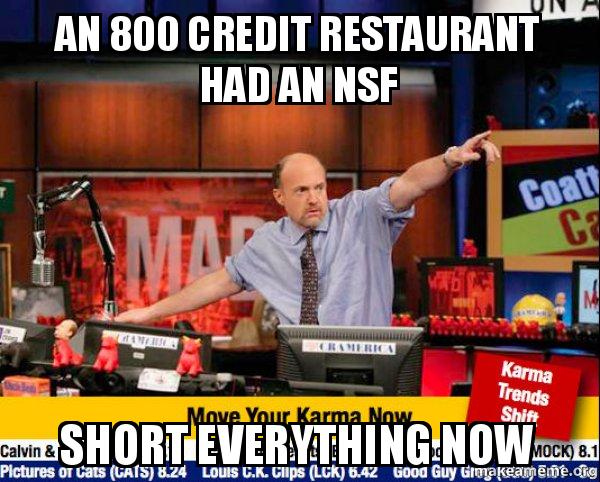 On November 10th, OnDeck Capital finally made their
On November 10th, OnDeck Capital finally made their 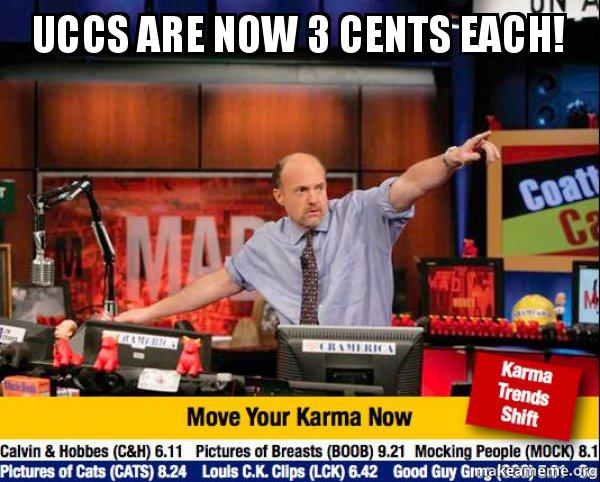
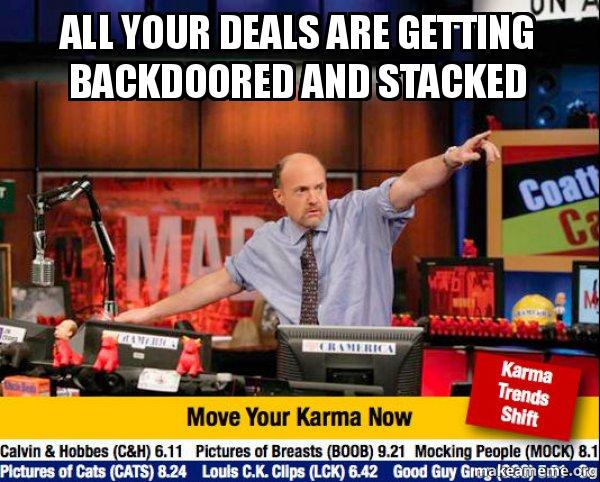
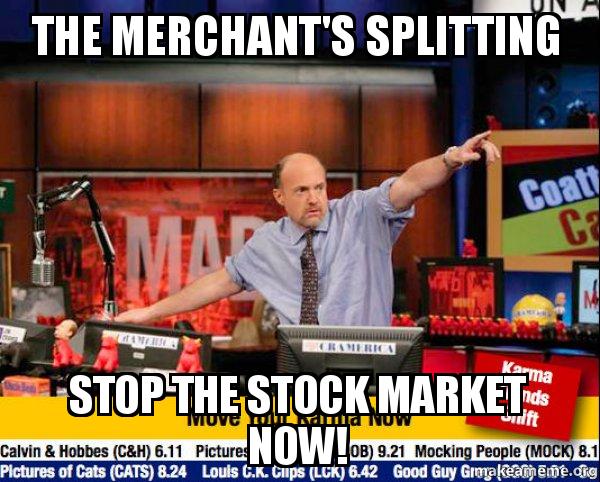
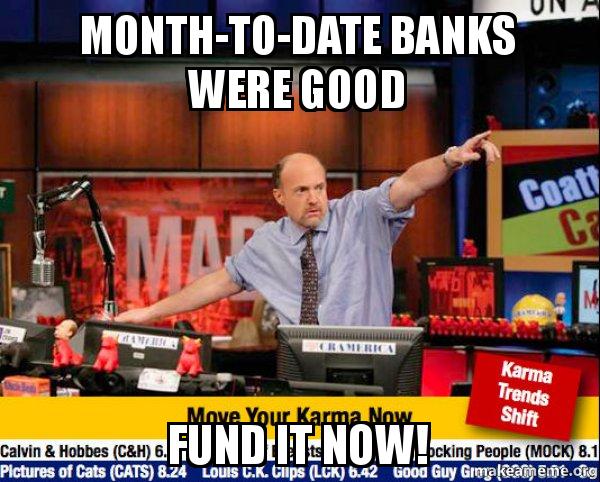
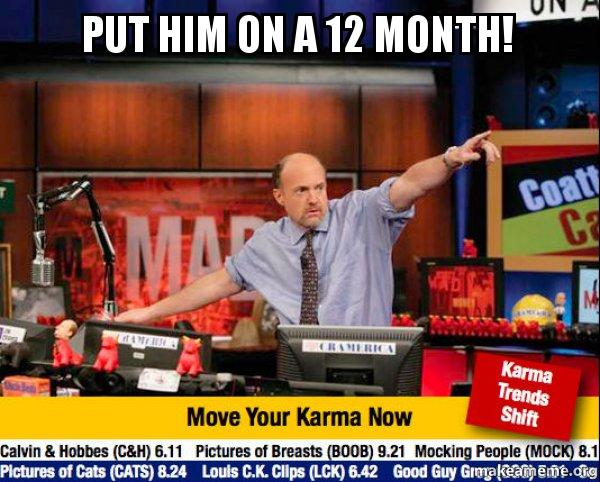


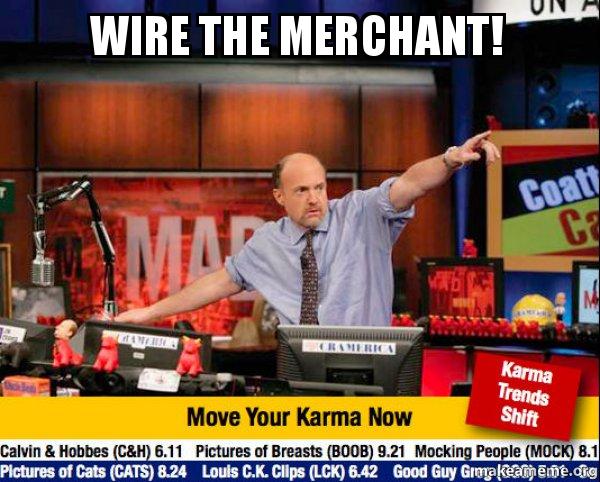

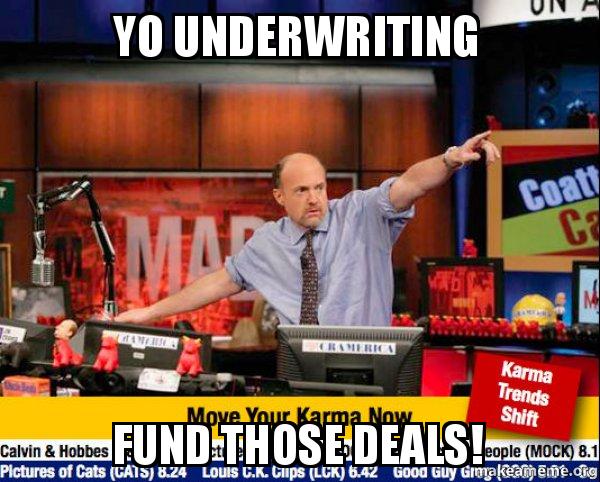
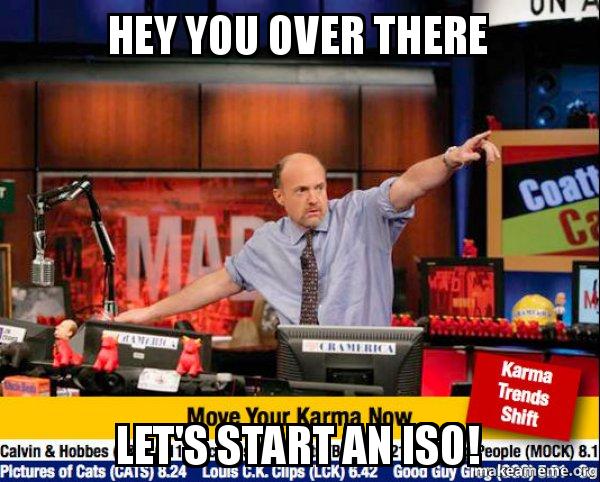
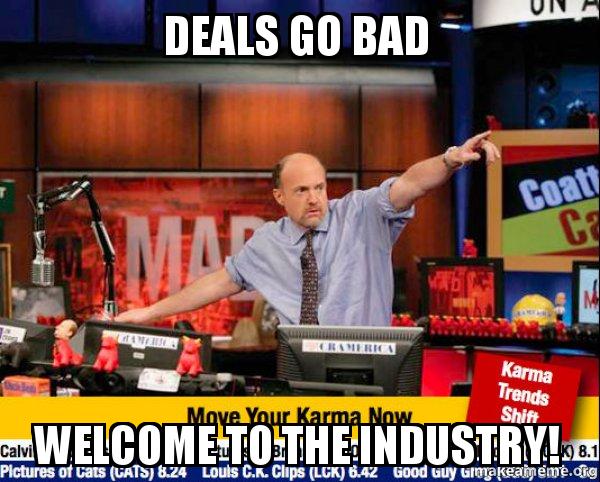
 Back on August 14th, the
Back on August 14th, the  With $1.3 billion funded since 2006, an independent report cited in the registration by Oliver Wyman estimates the untapped market to be between $80 billion and $120 billion.
With $1.3 billion funded since 2006, an independent report cited in the registration by Oliver Wyman estimates the untapped market to be between $80 billion and $120 billion. 


























